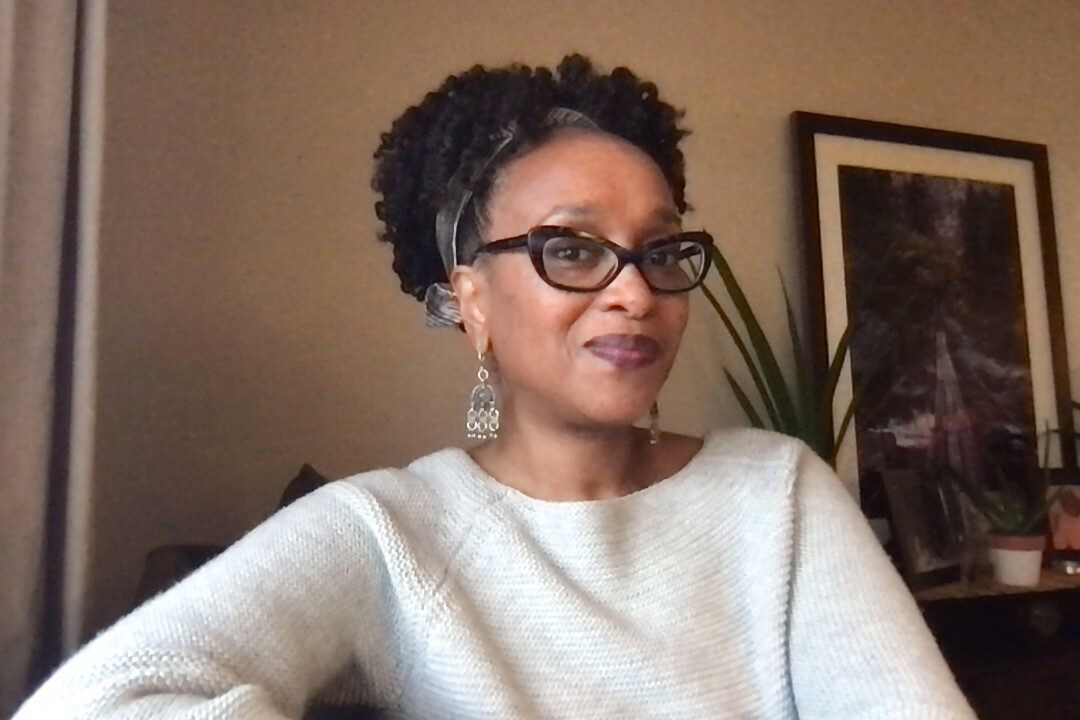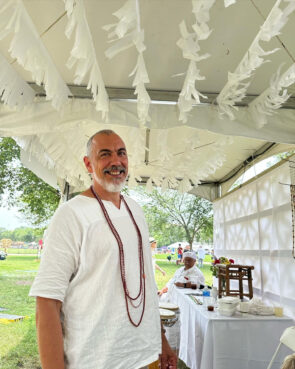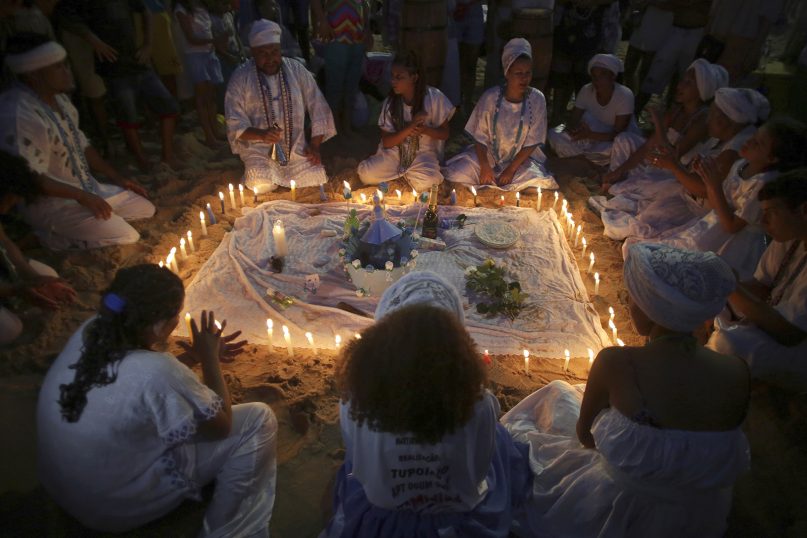(RNS) — Growing up, Chaya Murrell started her day by reciting the Bible’s Psalm 23, which begins, “The Lord is my shepherd, I shall not want.” The daughter of two Christian preachers also volunteered at the church’s nursery and played roles in the church’s plays. “It was like a major anchor in my life,” she said.
Now 27, Murrell still recites the psalm occasionally but has added other practices, such as yoga and tarot card reading. “There is still Christianity present, I still enjoy gospel music. It still feels very grounding to me, but for the most part it has shifted,” she said.
Murrell said her shift began as she explored spiritual practices that would celebrate her identity as a Black woman, particularly ancestral African religions, which eventually led to her “religious liberation.”
“Following Christianity, as a Black person, feels like laws, like another set of laws, like another set of political governance,” she said.
Today when she prays, it’s not to God but to her ancestors, for whom she has built an altar in her house.
Murrell’s experience mirrors that of many American descendants of Africans who came to the United States, either after being enslaved or emigrating from elsewhere in the diaspora. Spiritual practices such as ancestral veneration and Ifá, as well as Afro-Caribbean practices such as Haitian Vodou, Brazilian Candomblé, Cuban Santería, have gained attention among Black Americans, who see it as an occasion to reconnect with their heritage and celebrate their Blackness.
A 2021 Pew Research Center study showed that 15% of Black adults pray at a home altar or shrine more than once a week.

Rachel Elizabeth Harding. (Courtesy photo)
Rachel Elizabeth Harding, an associate professor of Indigenous spiritual traditions at the University of Colorado Denver and a Candomblé priestess, said that African religions play the same role African American Christianity has for decades, celebrating Black identity and offering solace to oppressed Black people.
“The key characteristics of the religions that Black people created on this side of the Atlantic everywhere — in Haiti, Cuba, the United States, Venezuela and Brazil — are that these are our means by which we affirm the deepest humanity of people,” she said.
African spiritual traditions also play a role in today’s anti-racist activism, just as Black churches did in the Civil Rights Movement, she noted. At the #BlackLivesMatter protests that followed George Floyd’s death in 2020, demonstrators often performed rituals celebrating Ifá, a West African deity, and BLM leader Patrisse Cullors has talked about the importance of ancestral African spirituality to the movement.

Aníbal Mejía at the Smithsonian Folklife festival last summer in late June 2023, on the National Mall in Washington, D.C. Mejía was with the group Egbe Omo Alairá presenting Candomblé arts and culture as part of the festival. (Courtesy photo)
The comfort and identification these traditions offer parallels the role of Black faith in the Civil Rights Movement, Harding explained, but go further, in that, unlike Christianity, they are seen as endemic to sub-Saharan African culture. Some were forged out of combinations of existing faiths by enslaved African people when they reached the New World.
“They think they see something in that tradition and say, if this was helpful to our ancestors, perhaps it’s something that we can draw strength from,” said Harding.
Aníbal Mejía, 59, a former Unitarian Universalist, discovered Candomblé during a trip to Salvador de Bahia, on the northeast coast of Brazil, 30 years ago. He sees Candomblé as a way to reconnect with his Afro-Latino identity and promote African culture, as well as considering it a testimony to the resilience of a once-enslaved people.
Since he started practicing Candomblé, Mejía, who discovered in a recent DNA test that his ancestors lived in the Senegambia region of West Africa, has learned the ancient language of the West African Yoruba people and how to play African drums.
Despite their focus on African culture, the spiritualities are also attracting followers beyond the Black community. Mejía practices Candomblé in a multiethnic community in Oakland, with Filipino, Italian, Trinidadian and Jewish members.
So diverse is his community, he said, that they consciously strive to ensure the practice is still centered around Black people and Black culture. “One of the challenges of doing Candomblé in the States is that it’s hard to stay proactively affirmative and centering on Black folks,” he said.
While looking back to his African origins, Candomblé, Mejía said, “helps me stay in this historical moment of confronting oppression in this American situation.” He notes that when he first encountered Candomblé, he was struck by the important role its liturgy attributed to women.
Murrell said that her own quest for a faith that fit her better began with her questions about the role attributed to women in the churches she grew up in. Raised in Black and multiethnic congregations, Murrell deplored that few women held leadership positions. She felt that the church was reinforcing stereotypical gender roles, encouraging women to be nurturers and caretakers.
Her first forays into African spirituality involved reading about Orishas — Yoruba nature deities, many of whom are female — and Vodou goddesses. Instead of church hierarchies, ancestral veneration allowed her to find practices and relationships with the spiritual world that worked for her. “It did feel like it was my own, in a different way than Christianity,” she said.





